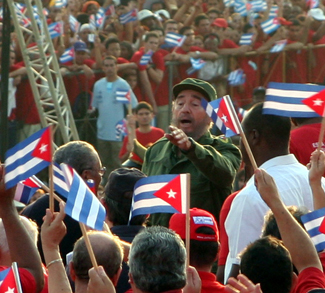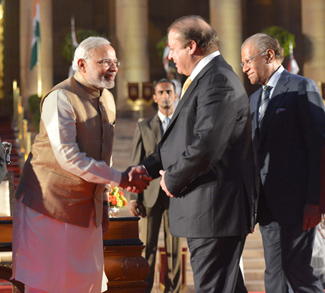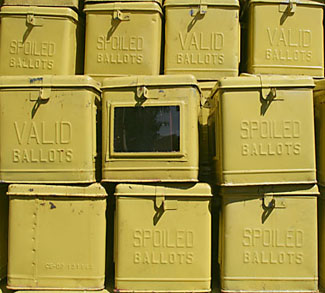Fidel Castro is dead. The Cuban dictator’s departure places the headstone on the Cold War, or at least the post-WWII world order. Much more than was the case with the death of Hugo Chavez, Fidel has taken the last breaths of Caribbean communism with him. Yet, for a brief period, Fidel’s island utopia became the center of the world’s worst fears and greatest hopes. Just a few miles away from Florida are the echoes of a failed U.S. blitz at the Bay of Pigs, the appeals of Pope John XXIII, and American and Soviet superpowers coming within inches of dragging the world into World War Three.
Fidel and his revolutionary partner, Ernesto “Che” Guevara soon became the symbols of a youth revolution in the West. It did not produce much more than a shift in culture and perhaps the erosion of the meaning of authority. But, communism, apart from the isolated efforts of fringe groups, did not spread. Castro was many things, but he wasn’t a communist. He was a nationalist. He did not want Cuba to remain a ‘brothel for the United States.” While many of his admirers might have exceeded in their acclamations, including Canada’s very own Prime Minister Justin Trudeau, the critics missed the point. Castro restored Cubans’ sense of pride. No Caribbean nation comes close.
Castro led a revolution against the corrupt regime of Fulgencio Batista. It wasn’t a communist revolution. His success was facilitated by President Eisenhower’s disengagement from that outpost, marked by frequent revolts, coups, and counter-coups. Castro was not motivated by Marxist ideals. He did identify his island country’s problems as coming from the United States, but he targeted rampant corruption in every ganglion of public life. It was later, that Castro ‘el Lider Maximo’ leaned on the USSR. He asked Nikita Khrushchev for help only when he realized that he could not stand up to the United States ‘naked,’ without proper military deterrents. Had Castro led a revolution a few decades earlier, who knows whose support he would have solicited. Castro, might even have become a fascist like his fellow Galician Francisco Franco in Spain.
But the Cold War imposed a bipolar system that left little to the imagination. If the revolutionary leader of a small country needed support, the choice was simple: either you are with Washington or Moscow. It wasn’t even a G.W. Bush case of ‘with us or against us.’ Formally, in fact, Cuba was one of the “non-aligned states,” along with Sukarno’s Indonesia and Josip Broz Tito’s Yugoslavia. But, Cuba earned a spot as the West’s champagne leftists’ communist utopia with a smile. But history has a way of turning even the most idealistic of revolutionaries into tyrants, often despite their own will. However, Castro left an indelible mark on the world, and as he said: “history will judge me.”
“Hasta la victoria, siempre,” wrote Russian President Vladimir Putin to his country’s former client. But, Putin also captured the essence of Castro’s true achievement. He fought for and maintained Cuba’s independence. The New York Times and the Washington Post did not fall short of Fidel’s own presumed expectations, throwing mud on his figure. Pope Francis predictably expressed warm feelings, while President Barack Obama extended “a hand of friendship to the Cuban people.”
The biggest mistake of Fidel’s detractors is to consider his revolution and leadership according to the moral and ethical parameters of our day. This is especially the case when it comes to the persecution of homosexuals. But, this would fail the test of analysis as a pretext to throw blame on Castro’s leadership.
Being gay or effeminate sparked discrimination and social marginalization in the West until not long ago. In the “democratic” West, this mentality prevailed for the entire first part of the 20th century. The UK abolished the crime of homosexuality in 1967. In some U.S. States, until 2003, sodomy, hetero or homosexual, was considered a crime. As for Cuba, relations between consenting adult homosexuals (not prostitution) were legalized in 1979. In 1995, Cuba won an Oscar as Best Foreign Language Picture with Freisa y Chocolate (Strawberries and Chocolate). The movie tells the story of a homosexual dissident – presented in a flattering light.
The other obvious and frequent point of contention is emigration from the island. Nothing has contributed more to that emigration than the debilitating US embargo that devastated the local economy. The embargo, as all embargos, has hampered political development as well, by forcing people to rely on the state. After the breakup of the Soviet Union and the Warsaw Pact in 1990, Cubans felt the effects of the embargo even more directly, given the loss of important markets and aid. On a separate note, the ‘capitalist’ economies of Mexico, Nicaragua, the Dominican Republic, Haiti, and any number of Caribbean and Central American states, produce many more migrants than has Cuba.
Cubans are proud of their achievements. They are proud of what they and Fidel have done. They are united like no other country in all of Latin America. Hoping for an uprising by tightening the embargo just as the Soviets left, the US found a people who managed to remain independent once again. The widely praised Cuban education system took a few hits in the 90s, but many Latin Americans, and others, continue to come to Cuba to benefit from it. They also come to enjoy the country’s healthcare system. This includes those coming from allegedly democratic and free market economies. Nicaragua is full of people who studied, for free, in Cuba. They enjoyed free room and board for years. Cuba commands respect in Latin America. It has earned it.
Cuba began to emerge in 1860, when whites and blacks came together to challenge Spanish rule. They won independence in 1898, when the U.S. found an excuse to arrive. They changed their Spanish masters for American puppets. There was a revolt in the 1930s, followed by more dictatorships and puppet governments, while their economy depended on the United States. And then came Fidel. He made sure Cuba did not end up like Puerto Rico. Fidel united Cubans and invented the very idea of ‘Cubaness.’ Under his rule, Cuba made the only true and significant social achievements of Latin America, capturing the imagination of many around the world in the process. Fidel turned a colony into a state.
Castro made mistakes. Cubans have suffered and much could have been done better. But the alternative might have been far worse. Thanks to Fidel, Cubans are now the best educated, most literate people of the Caribbean. They are the better to face the challenges of the future. Hasta la victoria, siempre Comandante.




